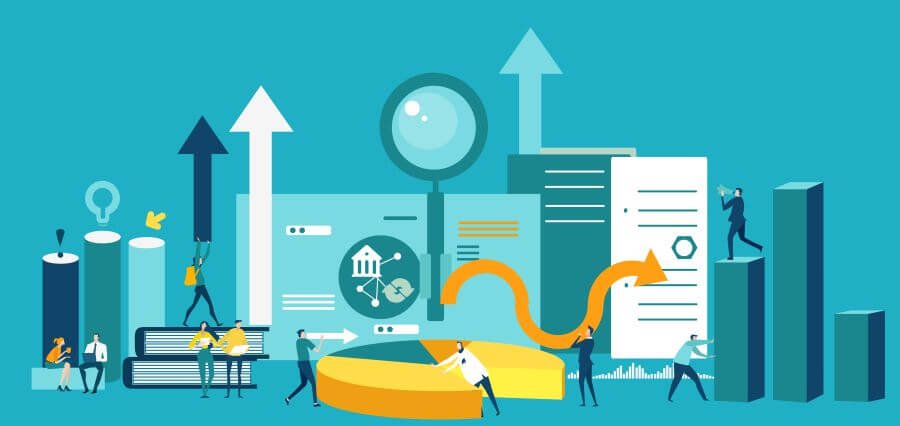When we observe the fast developing economies in the world, the prominent aspects that are visible are progressive policies of the government, women empowerment and inclusion, developments in technology, communication, infrastructure, health and hygiene and socio-economic development of the people.
The economic development of the nation includes high per capita income, strong banking and finance policies, open economic opportunities, business-conducive environment with skilled and talented workforce. The number of businessmen and industrial manufacturers plays a vital role in mobilizing the crucial nerves of the economy.
Any entrepreneur begins the business venture with an objective of offering products through manufacturing or trading, providing services and even consulting services. In any business function there are four important links namely customers, vendors or suppliers, employees or associates and resources. The role of businessmen is vital for the national development in several ways.
Employment Generation and Economic Mobility
In order to carry out the business functions smoothly, the entrepreneur requires manpower support as a result he offers job opportunities to the people for carrying out several tasks in his business. By employing a diverse workforce, organizations ensure their operational objectives are fulfilled and also facilitate economic potential for individuals. With the growth of the organizations, the requirement of skilled employees, thereby fostering education and training programs. Moreover, the triggering effect of employment spreads through the economy, enhancing consumer spending power and contributing to a higher standard of living.
Innovation and Technological Advancement
Business organizations need to survive the competition, sustain and grow in the evolving economy. So they are at the forefront of innovation, constantly pushing the boundaries of newer possibilities. Through research and development initiatives, strategic partnerships with technology firms, and implementing management systems, the companies drive technological advancement, leading to increased productivity and efficiency across sectors. From the innovations in renewable energy to advancements in artificial intelligence, organizations play a vital role in reshaping the future landscape of industries, thereby boosting national competitiveness on a global scale.
Contribution to GDP Growth
The Gross Domestic Product (GDP) which is a barometer of a nation’s economic health, measuring the total monetary value of goods and services produced locally. Progressive organizations significantly contribute to GDP growth through their production activities, export-import transactions, and value-added services. As companies thrive, they generate revenue streams, pay taxes, and reinvest profits into further expansion, thereby fuelling economic growth and stability.
Global Competitiveness and Trade
In an increasingly interconnected world, organizations play a crucial role in fostering global competitiveness through international trade. By capitalizing on comparative advantages and leveraging supply chain networks, these companies expand their market reach beyond national borders, tapping into new opportunities for growth and investment. Furthermore, participation in global trade enhances economic resilience, as these organizations diversify their revenue streams and mitigate risks associated with domestic market fluctuations.
Corporate Social Responsibility and Sustainable Development
Business organizations are becoming aware of the social improvements and are contributing through their efforts in donating money, food, water, clothes, books, sponsoring education, etc activities. These initiatives termed as Corporate Social Responsibility (CSR) have gained prominence, with the role of recognizing their broader impact on society and the environment. By adopting sustainable practices, businesses contribute to the long-term well-being of communities and ecosystems, thereby fostering a conducive environment for economic growth. Initiatives such as environmental conservation, philanthropy, and ethical labor practices not only enhance corporate reputation but also align with the broader goal of sustainable development.
Small and Medium Enterprises (SMEs) and Entrepreneurship
While large corporations often dominate discussions of modern businesses, small and medium enterprises (SMEs) and entrepreneurial ventures play a significant role in driving economic growth and innovation. SMEs serve as engines of job creation, particularly in emerging sectors and underserved markets. Moreover, entrepreneurship fosters a culture of innovation and risk-taking, nurturing a pipeline of new ideas and ventures that contribute to the dynamism of the economy.
Regulatory Framework and Government Policies
The relationship between progressive companies and the state is governed by a complex interplay of regulatory frameworks and government policies. While regulations aim to ensure fair competition, consumer protection, and environmental sustainability, excessive bureaucracy and red tape can stifle business growth and innovation. Therefore, fostering a conducive business environment requires a delicate balance between regulatory oversight and enabling policies that incentivize entrepreneurship and investment.
Challenges and Opportunities Ahead
Despite their significant contributions to national economies, modern businesses face a myriad of challenges in an ever-evolving global landscape. Economic uncertainties, geopolitical tensions, technological disruptions, and environmental concerns pose existential threats to businesses of all sizes. However, these challenges also present opportunities for adaptation, innovation, and resilience-building. Embracing digital transformation, investing in human capital, and embracing sustainability are key strategies for businesses to navigate the complexities of the modern economic landscape.
Nation Builders of Progressive Tomorrow
The role of business organizations in boosting national economies is a vital driving force. From employment generation to technological innovation and global competitiveness, organizations serve as engines of economic growth and societal development. By embracing their responsibilities as stakeholders in the broader community, businesses can contribute to a more inclusive and sustainable future, driving prosperity for generations to come. The changing dynamic of the modern economic landscape is influenced by the collaboration between organizations, governments, and civil society will be essential in unlocking the full potential of enterprise-driven growth.




